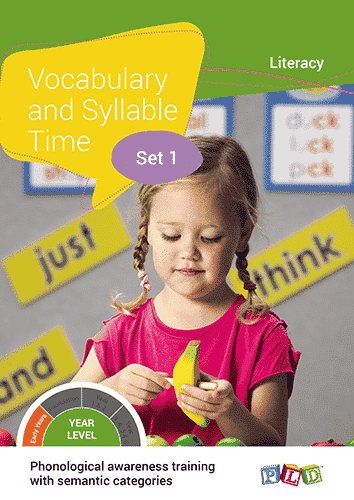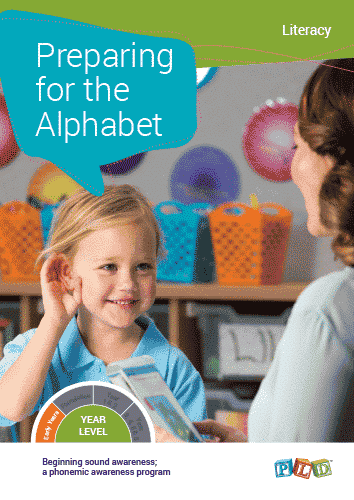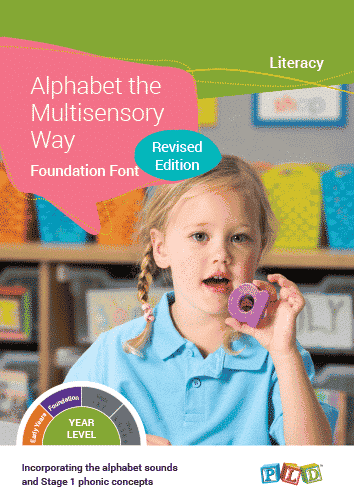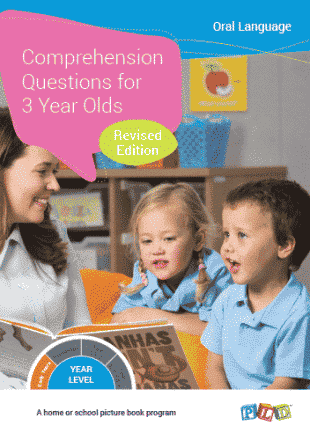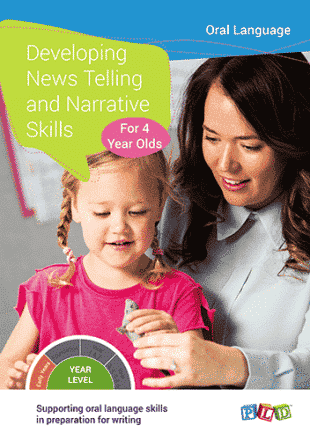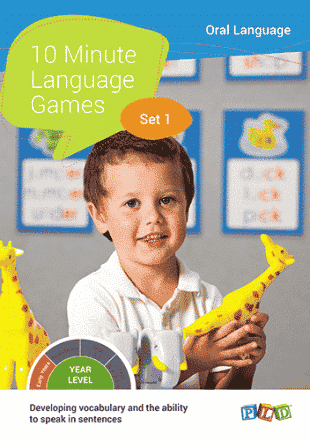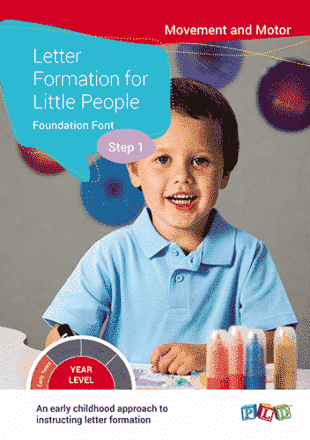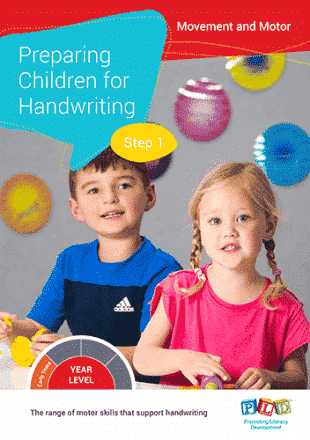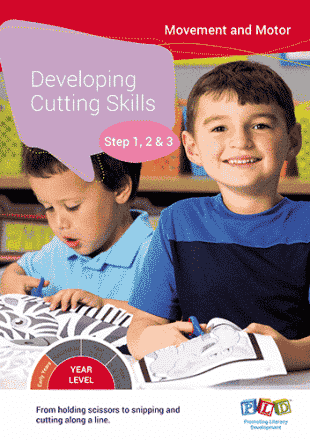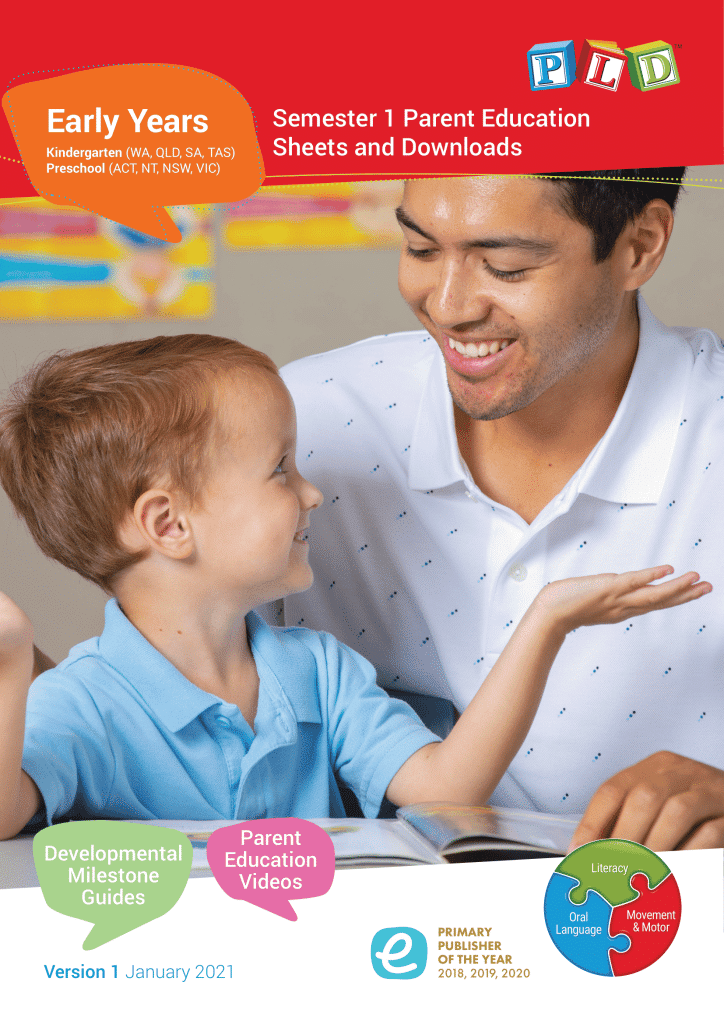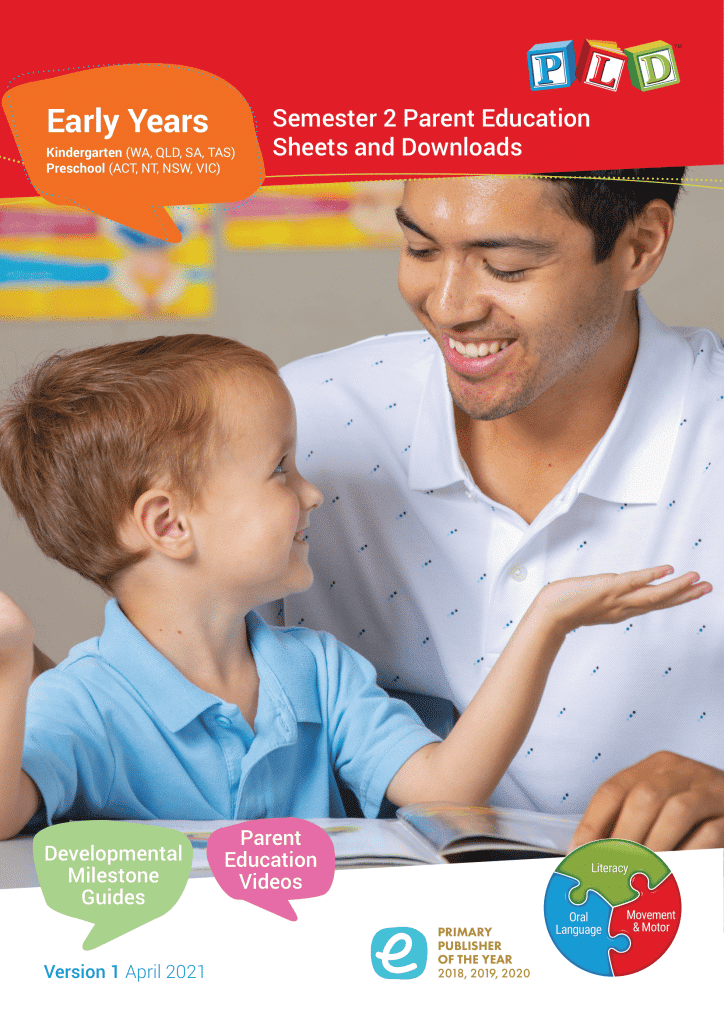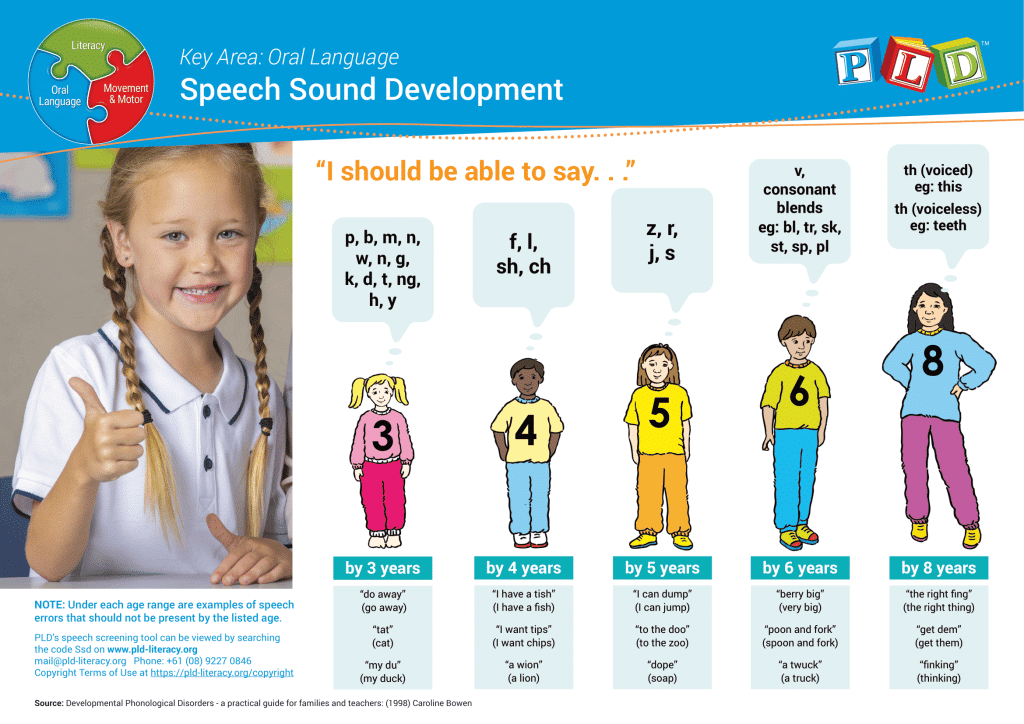Home Schooling in the Early Years
Play and Child-Centred Early Childhood Teaching & Learning
The Early Years are considered to be one of the most significant periods for the development of language, motor and cognitive skills. At 3 and 4 years olds, children are increasingly verbal, forming longer sentences and their pronunciation is becoming clearer. Motor skills are becoming more refined and should be demonstrating an emerging awareness of words, letters and numbers.
PLD’s programs are aligned with the Early Years Learning Framework.
Use the tabs below to skip ahead to the:
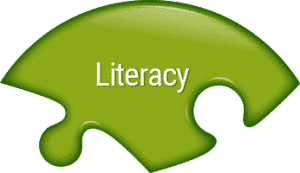
Pre-Literacy
Pre-Literacy skills are essential to prepare children for formal schooling. Activities which focus children on hearing the sounds in words (phonological awareness) and the links to alphabet sounds, provide an ideal preparation for literacy learning once in school.
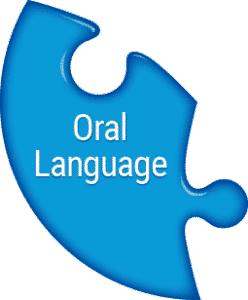
Oral Language
Oral language refers to the act of speaking and listening. Oral language skills includes vocabulary, sentence structure, comprehension and structured thinking (or the ability to elaborate, organise and sequence thoughts). While poor oral language skills do not prevent children from reading, it can impact reading comprehension, writing and the accessing the full curriculum.
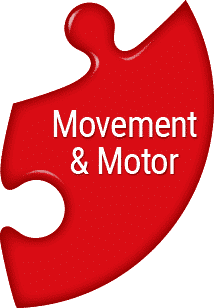
Movement & Motor
The way students coordinate their body and use their muscles to respond to what they hear is a big part of literacy. Often, a physical response is required. A classic example is the ability to follow instructions and compose a written response. A range of physical skill development supports the functioning within a classroom and includes skills such as pencil grip, cutting skills, letter formation and handwriting.
Children benefit when home and early childhood services work together. To support this, PLD offers an extensive range of parent information sheets and videos. These resources are ideal to be disseminated to parents and the wider community through newsletters, websites and general communication.
The most time-efficient and cost-effective way to upskill with PLD is by enrolling in the ‘Implementing SSP in the Early Years‘ online course. The two-and-a-half-hour course is divided into four sections.
- Videos 1 & 2 relate to Semester 1. (Installment 1 is available as a free preview)
- Videos 3 & 4 relate to Semester 2.



